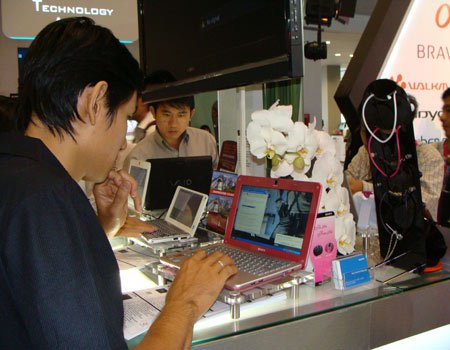Dell regained the second position from Acer in the computer market
Market research firm IDC said that thanks to strong growth in Asia and Latin America, Dell returned to their position 1 year ago and was second only to HP.
According to IDC, the world has consumed 81.5 million products, up 22.4% over the same period last year. HP kept No. 1 with 14.8 million computers sold, up 12.2% from last year and accounting for 18.1% of the share. Dell sold 10.6 million PCs, accounting for 13%. Accompanied by Acer with 12.6% market share. The following positions include Lenovo, Toshiba and Asus.
According to IDC, PCs include desktop computers, laptops and netbooks. This company does not let tablets into this segment.

The PC market grew strongly in the second quarter of this year. (Photo: Ha Mai).
Another Gartner study has recently been published. Accordingly, the computer market saw a strong growth of 22.4% in the second quarter of this year. The number of PC sold reached 82.9 million products. HP is currently leading the global computer market but has fallen from 18.8% market share to 17.4%.
Acer continues to hold the No. 2 position, accounting for 13% of the market share. Dell grew by 19% but due to not keeping pace with global growth, market share dropped to 12.4%. Next is Lenovo with 10% and Asus with 5.2%, Toshiba 4.8%.
According to Gartner, the growth of small laptops (netbooks) has dropped markedly but still more than the overall increase of PCs. " Netbooks grew less than 20% compared to last year's 70% ," said Gartner analyst Kitagawa.